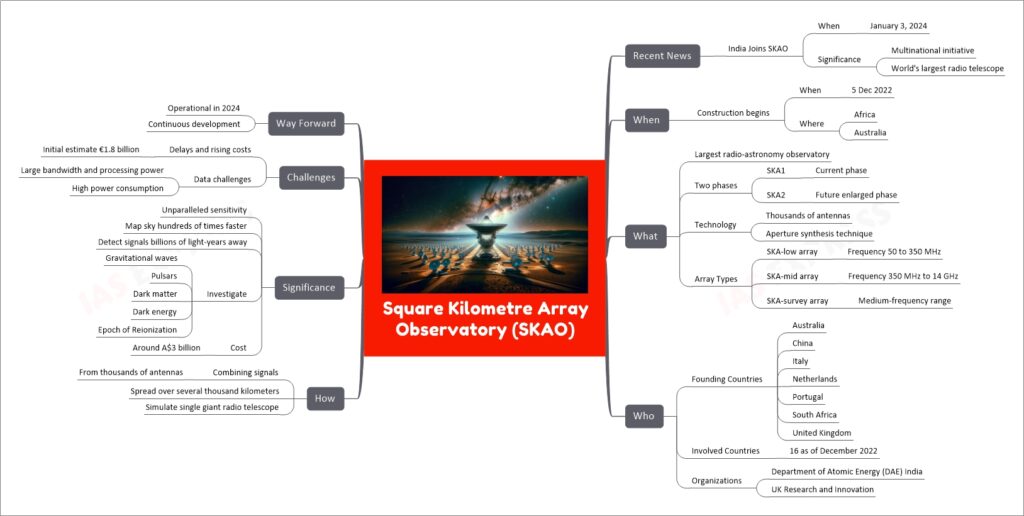Square Kilometre Array Observatory (SKAO)

The Square Kilometre Array Observatory (SKAO) represents an ambitious multinational project aimed at constructing the world’s largest radio telescope. With construction commencing in December 2022 across sites in Africa and Australia, this groundbreaking facility will utilize thousands of antennas to simulate a singular, massive radio telescope. SKAO will provide unprecedented sensitivity and the ability to rapidly map the sky, significantly advancing our understanding of the universe. Key focus areas include studying gravitational waves, pulsars, dark matter, and dark energy, and investigating the Epoch of Reionization. Despite challenges like delays and rising costs, the SKAO, once operational in 2024, promises to revolutionize our perception of the cosmos.
If you like this post, please share your feedback in the comments section below so that we will upload more posts like this.

